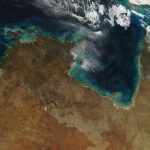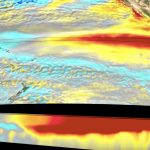 October 2, 2018 1:34 pm
Published by Climate Extremes
October 2, 2018 1:34 pm
Published by Climate Extremes
Forecasting El Niño Southern Oscillation (ENSO) events, and anticipating how they may change with global warming remains a significant challenge for climate researchers. An ENSO complexity workshop held in November 2017 produced a follow-up paper summarising what we know about ENSO and its predictability.
 August 14, 2018 4:39 pm
Published by Climate Extremes
August 14, 2018 4:39 pm
Published by Climate Extremes
This project will examine ‘mixed teleconnections’ using coupled climate models. In particular, we will examine how El Nino and La Nina events can affect western boundary currents in the Pacific and Indian basin. It will involve using large model and observational datasets and require a background in either MATLAB or python. Some experience with linux is desirable.
 August 14, 2018 4:32 pm
Published by Climate Extremes
August 14, 2018 4:32 pm
Published by Climate Extremes
This project will use one or more simplified climate model(s) to investigate the importance of the tropical stratosphere in modulating the effects of ENSO and the MJO on Southern Hemisphere climate. It can either involve the actual model setup and running, model output analysis, the review of current scientific knowledge and hypotheses, or a combination of these.
 August 14, 2018 3:59 pm
Published by Jenny Rislund
August 14, 2018 3:59 pm
Published by Jenny Rislund
Despite the improvement in our understanding, numerical models and observations, El Nino events have dramatic impacts on climate and extreme weather around the globe. This project will further study the nature of this stochastic forcing and its relationship to background SSTs.
 July 25, 2018 3:00 am
Published by Climate Extremes
July 25, 2018 3:00 am
Published by Climate Extremes
It is hoped this proposed synthesis of two ENSO structures, their interaction with each other and how they respond to external forcing, will be the catalyst for future research and practical applications for forecasting and determining the impacts of present and future ENSO events.
 June 20, 2018 12:12 am
Published by Climate Extremes
June 20, 2018 12:12 am
Published by Climate Extremes
Using novel techniques developed by the supervisory team, the PhD candidate will evaluate the role of diabatic processes in the ENSO cycle, and how they may change in the future, using new observations and state-of-the-art model simulations. This research is critical to improving our ability to project future climate change.






